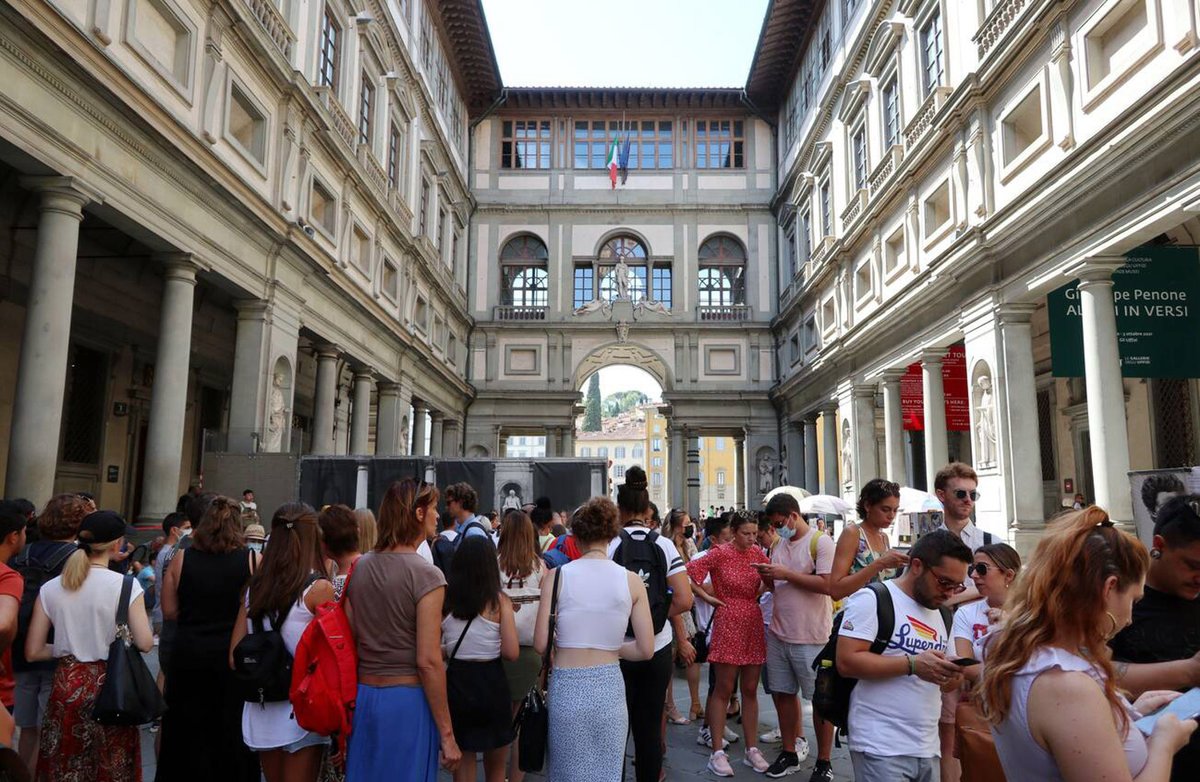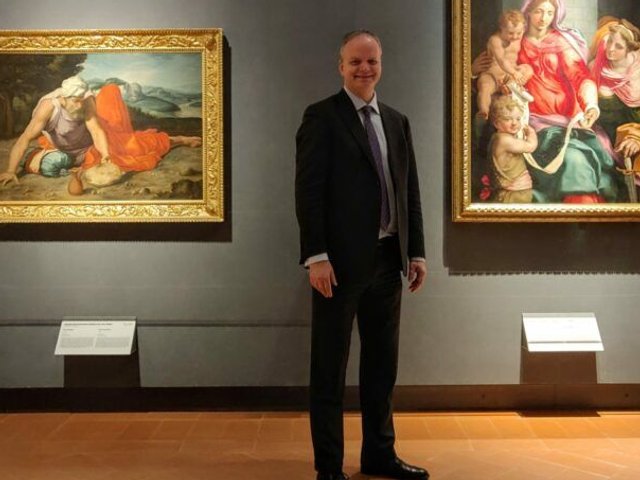As tourists return to Florence and Rome, ticket touts are also making a comeback. Now, the Uffizi Galleries’ director Eike Schmidt, who has waged war on touts since taking office in 2015, hopes to deliver a final blow. “We are already working on introducing named tickets,” Schmidt reveals to The Art Newspaper. The system will be operative in “months rather than years”, he adds.
According to Schmidt, named tickets could “be the next big step” in battling the touts. But the experience of other museums suggests that the solution is no silver bullet.
Touts buy tickets from museums and sell them on at inflated prices, often as part of packages featuring additional services, such as museum tours. Some sell tickets on the ground and allow tourists to jump long queues, while others operate through websites designed to trick buyers into believing they are official ticketing channels.
Standard adult tickets, priced at €16 (including booking fee) at both the Uffizi and Florence’s Galleria dell’Accademia, are typically resold for as much as four times the price. Touts’ annual earnings from Uffizi visitors are probably in “the single-digit millions”, Schmidt estimates. Their activity leads to the exploitation of tourists, while damaging both museums’ and Italy’s reputation, he adds.
Following pandemic closures, touts are now returning to Italy’s streets, according to widespread reports. “The scale of the problem is totally different to 2015, when packs of 25 to 30 sold tickets in the museum’s courtyard, but there are still small numbers of touts”, Schmidt says.
While Italian law regulates touting in some sectors, with named ticketing mandatory for sports events and concerts for more than 5,000 people, there is no nationwide rule for museums. “A national law would make a huge difference,” says Cecilie Hollberg, the director of the Galleria dell’Accademia. But a culture ministry spokesman disagrees: “I don’t think a national law is necessary. There are already enough rules [regulating touts] at a local level”.
Local administrations have tried to make headway. Tuscan laws currently outlaw the sale of tourist packages on public soil, a measure designed to allow agencies to operate normally from their offices. But as this permitted touts to approach tourists in public and complete transactions in rented property nearby, the city of Florence outlawed the offer of tourist packages on public soil in 2018.
Raise awareness
Museums have devised their own anti-tout strategies. During the summers of 2017 and 2018, the Galleria dell’Accademia staff distributed paper folding fans with official ticket prices printed on them among queueing visitors, to raise awareness of their (lower) prices. At the Uffizi, reducing queue lengths, installing an information point near the Piazza Signoria entrance in 2017 and introducing seasonal ticket prices in 2018 (thus cutting touts’ profits in the summer) has marginalised touts.
In what Schmidt describes as a “historic victory”, in February 2020 the federal court of Arizona in the US banned third parties from using web addresses that include the word “Uffizi”. Four months later, the same court ordered BoxNic Anstalt, which had used multiple sites to sell Uffizi tickets, to pay the museum $120,000 in legal fees. Subsequently, site operators have voluntarily ceased operations, Schmidt says. “There were hundreds in the past; now there are just two or three,” he says.
While the Uffizi believes named tickets could be decisive, Emanuela Daffra, the regional director of museums in Lombardy, notes that such access systems have drawbacks. At the Museo del Cenacolo Vinciano in Milan, limiting numbers to Leonardo’s Last Supper to 450,000 across the year for security reasons has boosted demand for tickets, meaning touts can sell €15 tickets for around €40, Daffra says.
To combat the problem, in June 2020 the museum introduced named tickets for viewing the Last Supper. While visitors can currently change names online up to 24 hours before their entry time, tour guides, who tend to buy blocks of tickets for large groups, have been especially inconvenienced when their customers do not turn up, Daffra says.
Pandemic closures mean it is too early to determine the impact of this anti-tout measure, Daffra says. Even so, the initial signs suggest “the system is working”.





